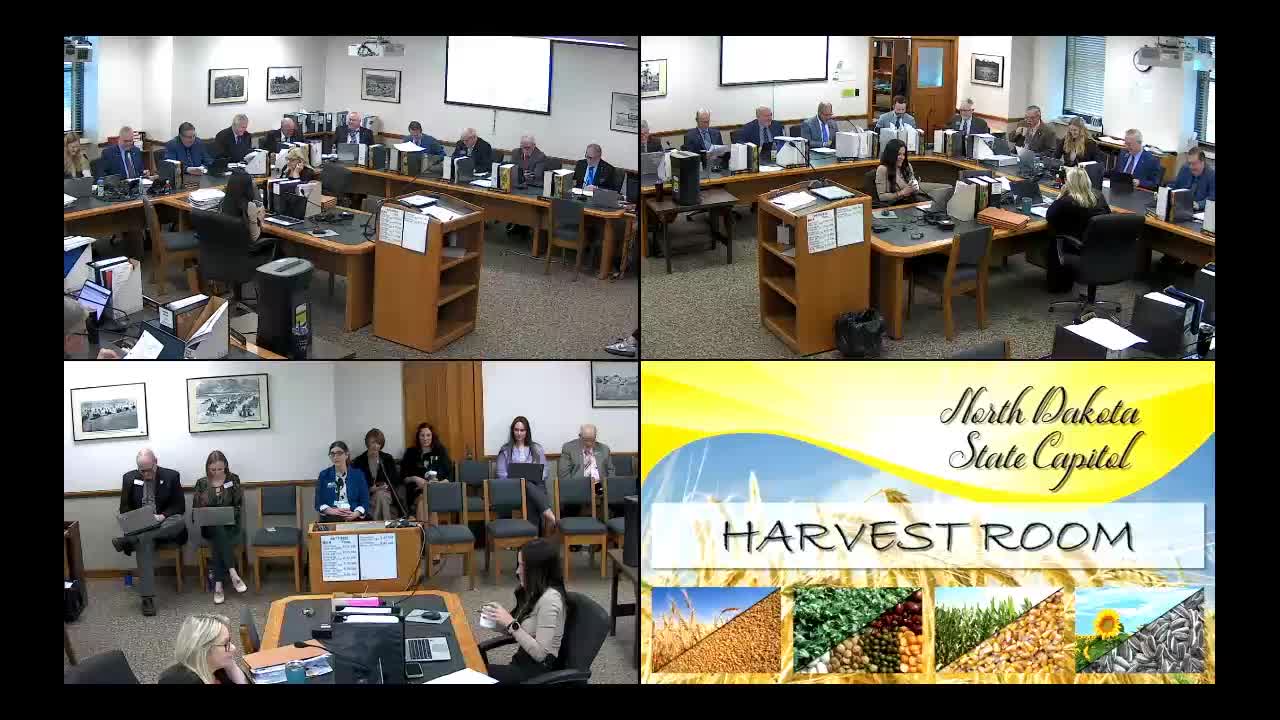Appropriations panel trims Chinese-divestment language, then recommends 'do not pass' on amended House Bill 1330
Get AI-powered insights, summaries, and transcripts
Subscribe
Summary
The Senate Appropriations Committee removed a new in‑state infrastructure provision and changed mandatory divestment language in House Bill 1330 so the State Investment Board may divest Chinese holdings. After further debate the committee voted 11–5 to recommend the amended bill be not passed.
The Senate Appropriations Committee considered House Bill 1330, a proposal addressing Chinese holdings in state investment accounts, and voted to recommend “do not pass” on the bill as amended, 11–5.
The bill, presented to the committee by Senator Caitlin Dwyer, originally would have required mandatory divestment of direct Chinese investments from state funds. Senator Dwyer said the version that came to the committee replaced a mandatory timetable with language authorizing — but not requiring — the State Investment Board to divest: “we felt that that was a better approach … give them the authority to do it,” she said. The amendment also consolidated three definitions (China, Chinese company, company) in the section that grants the board authority.
Committee members also debated a separate provision that would authorize concentrated in‑state infrastructure investments if the Legacy and Budget Stabilization Fund Advisory Board approves a strategy. Senator Eberly moved to strike Section 2 of the amendment — arguing the infrastructure language was not germane to the Chinese‑divestment topic — and Senator Davison seconded. The first procedural vote to remove Section 2 carried 12–4.
After the division’s change (deleting Section 2), the committee voted on an amendment that converted the mandatory divestiture into discretionary authority for the State Investment Board; that amendment passed 13–3. Later, a motion to recommend “do not pass” the bill as amended — advanced by Senator Eberly — passed 11–5.
Lawmakers debating the bill raised competing concerns about fiduciary duty and oversight. Senator Dwyer and supporters argued discretionary authority would let the State Investment Board follow the prudent‑investor standard when high‑return Chinese holdings exist. Opponents said the bill still raised questions about whether authorizing concentrated in‑state investments could conflict with the prudent‑investor rule and would cede too much spending discretion to the board.
Senator Connolly opposed striking Section 2, saying the proposed flexibility to invest in state infrastructure projects could yield substantial local benefits: “it’s important that we have that flexibility that we can invest in substantial infrastructure projects that would greatly benefit our state,” he said. Other members worried the provision could allow the board to exceed diversification norms or create an open door to additional concentrated investments in future bills.
Senator Dwyer said she would carry the bill forward with the committee’s changes.
What the committee did - Voted to remove Section 2 (motion passed 12–4). - Voted to adopt the amendment that made divestment discretionary (motion passed 13–3). - Voted to recommend “do not pass” on House Bill 1330 as amended (motion passed 11–5).
Key numbers and program details mentioned in committee - Committee discussion referenced the Legacy Fund as holding roughly $12,000,000,000 and said direct Chinese investments represented about $22,000,000 of that total (figures reported in committee testimony). - Committee members referenced an existing policy cap of $25,000,000 for an in‑state infrastructure investment, and earlier legislation (cited during debate) that authorizes up to $700,000,000 in equities and $600,000,000 in infrastructure investments from the Legacy Fund (these figures were stated in committee and are recorded here as presented).
Next steps Senator Dwyer indicated she will carry the bill with the committee’s changes to the next stage of consideration. The committee record shows the bill will proceed with the filing of committee recommendations and any further floor or conference committee action that follows.
